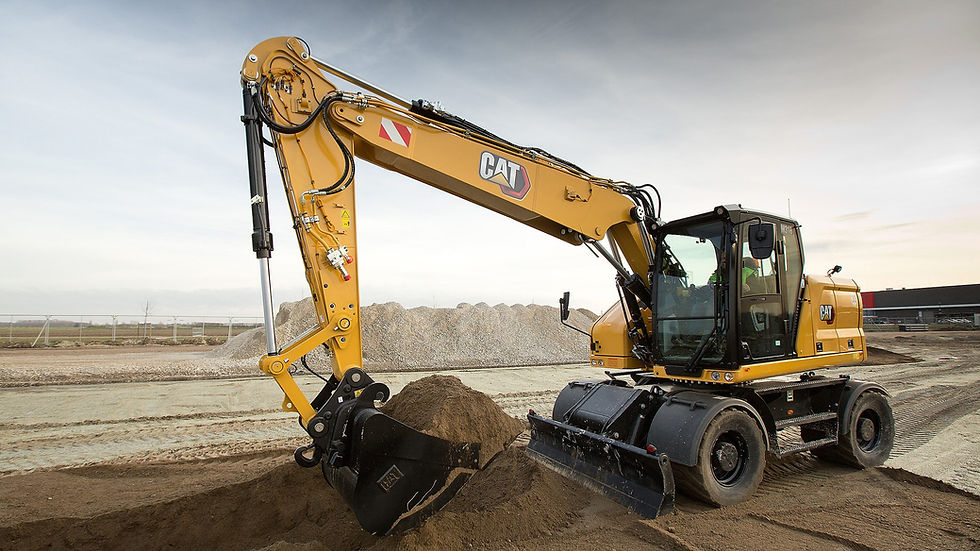Track versus Wheel Excavators - which is Best?
- RALPH COPE
- Apr 6, 2021
- 2 min read

In this blog, we are going to throw two heavyweights into the ring and let them slug it out to see which machine is best. In the left-hand corner, we have the track excavator; and in the right corner, we have the wheel excavator. We're going to run through the advantages of each and then try to help you decide which of these two beasts would work best for you.
Advantages of Track Excavators
The tracks make this machine exceptionally stable which means they are perfect for high production drilling. The grousers also provide for exception traction which means they can operate at some mad angles. The weight of the track undercarriage is also far superior to that of a wheeled excavator which in turn adds another layer of stability. This stability and power mean that the track excavator feels comfortable in technical terrain. Attachment. Also, attachments such as crushers, sheers, and hammers can be added for demolition and work in quarries.
Advantages of Wheel Excavators
The wheels enable this machine more agile and versatile than tracked models. What they lack in digging capacity, they make up with increased maneuverability. They are able to get to places where their tracked counterparts could not even dream of getting. They are also able to drive on hard surfaces such as roads which means they are able to operate in urban settings and can be transported with greater ease between work sites. Wheel excavators also sit high off the ground, which at first sight would compromise their stability. However, with its outriggers deployed and its blade on the ground, the wheel excavator can be just as stable as its tracked counterpart. This stability, however, is compromised on steeply sloped terrain.
Transportation and Operating Costs
Whereas a tracked excavator requires a heavy-duty truck or trailer to transport it to a worksite thus increasing expenses and decreasing productivity, a wheeled excavator can drive over paved roads and move much faster. Tracked excavators can only move about 7 to 10 km/h and do significant damage to hard surfaces and paved roads, but wheeled models can drive up to 30km/h without damaging the roadways. Also, although wheel excavators tend to have a higher upfront cost, they typically have a lower long-term operating cost than tracked models. The wheels and brakes cost less, last a longer period of time, and are much easier to replace than the undercarriages of tracked machines.
Which is Best?
To conclude, although not as popular in South Africa, the wheeled excavator is not just a niche machine as is often believed. The wheel excavator is a very versatile machine that is able to complete a large number of tasks and maintains low operating costs. It is suitable for operators in an urban setting or those whose budget permits purchasing one single, versatile machine. Those requiring high capacity digging in more unpaved areas are better off using a tracked excavator.
#heavyequipment #construction #excavator #heavymachinery #constructionequipment #heavyequipmentlife #caterpillar #earthmoving #mining #excavation #komatsu #equipment #heavyequipmentnation #cat #digger #excavators #demolition #heavyequipmentoperator #machinery #constructionlife #engineering #truck #concrete #bulldozer #earthmovers #constructionmachinery #civilengineering

Comments